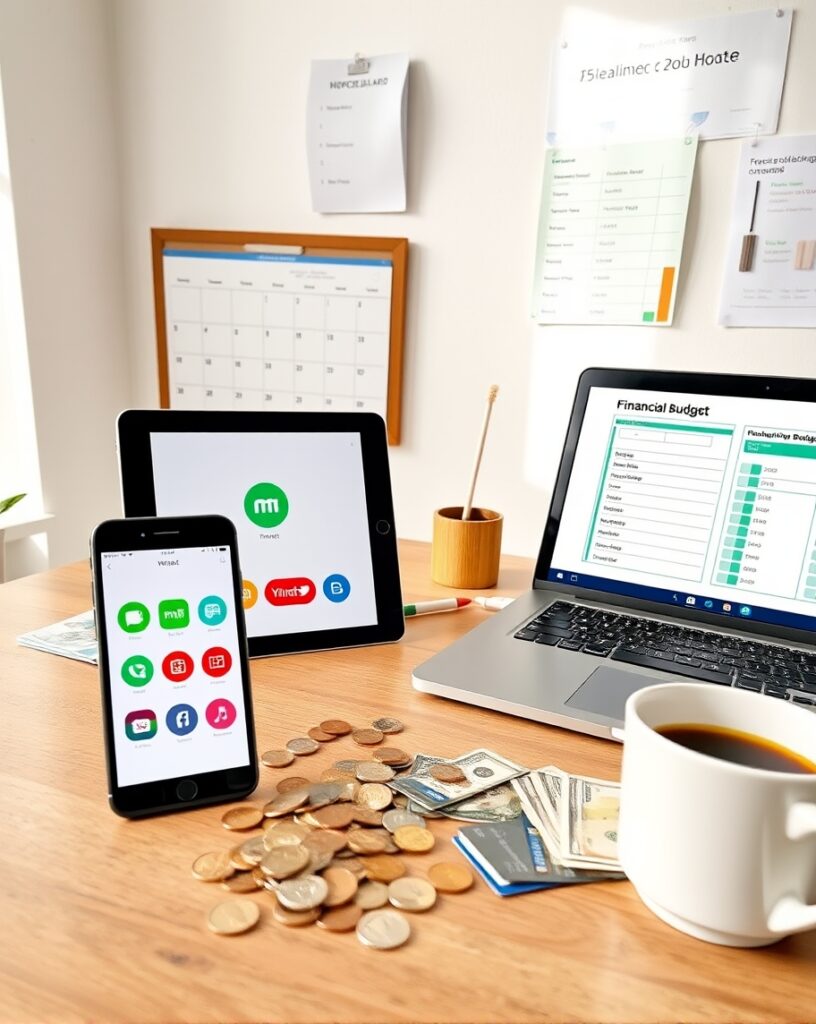In today’s fast-paced world, effective money management can be challenging. However, with the help of budgeting tools, you can streamline your financial decisions, track your spending, and work toward your long-term financial goals. Whether you’re saving for a new home, planning a dream vacation, or simply trying to build a solid emergency fund, budgeting tools can make all the difference.
In this blog, we’ll explore how to use budgeting tools to improve your finances, helping you take control of your financial future.
Why Use Budgeting Tools?
Budgeting tools help simplify and automate the process of managing your income and expenses. Here are a few key benefits of using them:
- Better Financial Awareness: Track every penny, ensuring you know exactly where your money is going.
- Goal Setting: Align your spending with your financial goals, whether saving, investing, or paying off debt.
- Automation: Automated tools make it easier to stick to a budget, track categories, and save time.
- Reduce Stress: Financial clarity lowers anxiety, making it easier to stay on top of payments and avoid overspending.
Top Budgeting Tools You Should Know About
Choosing the right budgeting tool is key to improving your financial health. Below are some of the best tools available:
- Mint
Mint is one of the most popular free budgeting apps, offering features like expense tracking, bill reminders, and credit score monitoring. The tool provides a snapshot of all your accounts in one place, making it easy to see your full financial picture.
SEO Keyword: “best budgeting app for beginners” - YNAB (You Need a Budget)
YNAB operates on a zero-based budgeting principle, meaning every dollar has a specific job. It’s particularly useful if you’re focused on paying off debt or managing multiple income streams.
SEO Keyword: “zero-based budgeting tools” - PocketGuard
PocketGuard focuses on simplifying your finances by showing how much you can safely spend after covering bills and savings. Its easy-to-use interface is perfect for beginners.
SEO Keyword: “easy-to-use budgeting apps” - Goodbudget
Goodbudget uses the envelope budgeting method, allowing you to allocate funds to specific categories like groceries, utilities, and entertainment. This visual approach helps limit overspending.
SEO Keyword: “envelope budgeting apps”
How to Make the Most of Your Budgeting Tools
Simply downloading a budgeting app isn’t enough—you’ll need a strategy to make the most out of these tools. Here are a few tips to maximize their impact:
- Set Clear Financial Goals
Whether you’re saving for a down payment, paying off student loans, or building an emergency fund, knowing your goals will make it easier to stick to a budget.
SEO Keyword: “financial goal setting tips” - Track All Your Expenses
It’s essential to account for all income and expenses, even the small, seemingly insignificant purchases. These can add up and skew your budget over time.
SEO Keyword: “how to track expenses efficiently” - Regularly Review and Adjust
Your financial situation can change from month to month. Set aside time to review your budget regularly, making adjustments as needed.
SEO Keyword: “how to review your budget monthly” - Use Alerts and Reminders
Many apps come with alert features to remind you of upcoming payments or when you’re nearing your budget limit. Take advantage of these features to avoid late fees and overdrafts.
SEO Keyword: “financial management reminders”
Long-Term Financial Benefits of Using Budgeting Tools
Consistently using budgeting tools offers a range of long-term financial benefits, such as:
- Improved Savings: Budgeting apps can help you set aside a percentage of your income every month, enabling you to reach savings goals faster.
- Debt Reduction: These tools make it easy to prioritize paying off high-interest debt first, which can save you money in the long run.
- Financial Independence: Over time, proper budgeting can lead to financial independence, allowing you to make choices based on your desires rather than your wallet.

